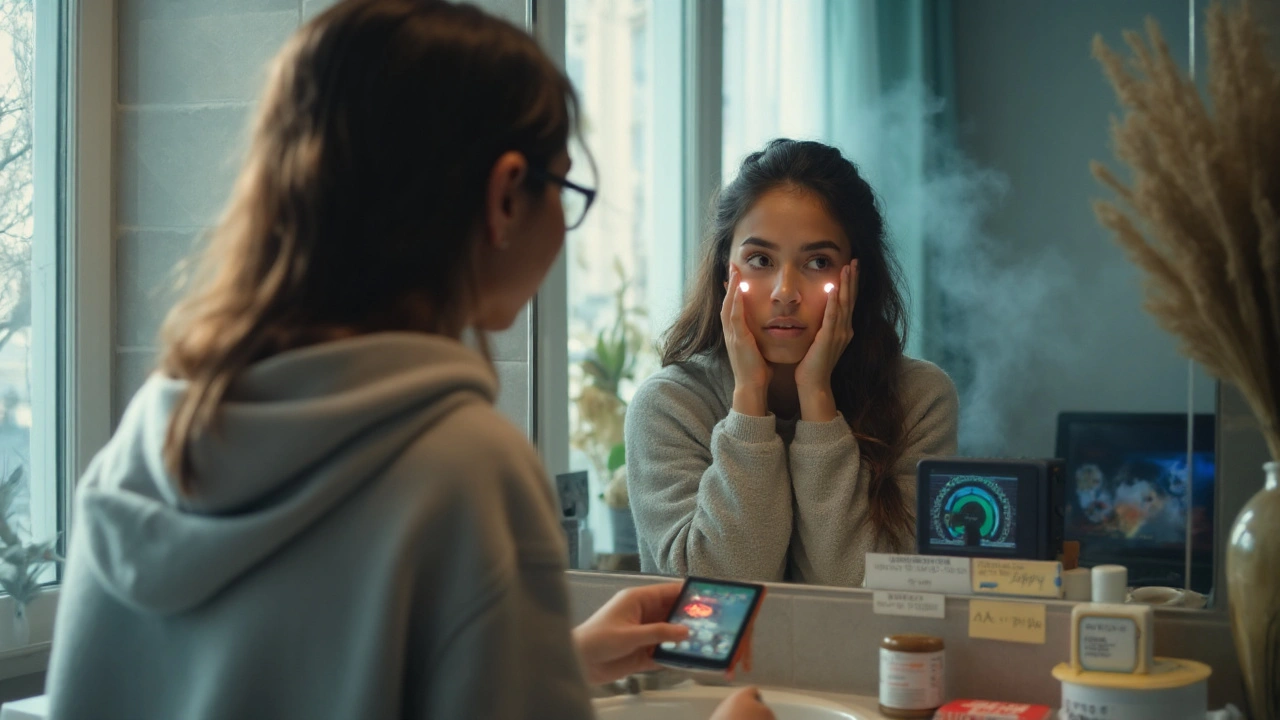Dry eye disease (DED) is when your eyes don’t make enough tears or the tears evaporate too quickly. Without a stable tear film, the surface of the eye gets irritated, which can lead to blurry vision and a gritty feeling. Most people notice the problem when they stare at a screen for a long time or when the air is very dry.
First, you might feel a constant sandpaper‑like sensation, as if something is stuck in your eye. This often comes with redness and a slight burning that doesn’t go away with normal blinking. Second, your eyes may start watering a lot – paradoxically, excess tears are a response to the irritation, not a cure. Third, reading or using a computer can become painful; words may blur after a few minutes, and you’ll find yourself blinking more often to keep the surface moist.
One of the quickest fixes is the 20‑20‑20 rule: every 20 minutes, look at something 20 feet away for 20 seconds. This gives your blink reflex a chance to spread tears evenly. Over‑the‑counter artificial tears are also handy; choose preservative‑free drops if you need them often, because preservatives can worsen irritation with repeated use.
Adjusting your environment helps a lot. Use a humidifier in rooms where you spend many hours, especially in winter when indoor heating dries the air. When you’re outside on a windy day, wear wrap‑around sunglasses to shield the eyes from wind and dust.
Diet can play a role too. Omega‑3 fatty acids, found in fish oil or flaxseed, support tear quality. A daily dose of 1,000 mg of EPA/DHA has been shown to improve comfort for many people with dry eye.
If over‑the‑counter options don’t give relief, a quick visit to an eye doctor can open up prescription options like cyclosporine eye drops or punctal plugs that block tear drainage. These treatments target the root cause rather than just masking the symptoms.
Finally, give your screens a break. Turn on “night mode” to reduce blue‑light exposure, and keep the screen a comfortable distance from your face. Small changes add up and can keep your eyes feeling fresh throughout the day.
Dry eye disease isn’t a life‑sentence. By spotting the signs early and using these easy habits, you can protect your eyes and keep daily tasks from becoming uncomfortable. Your eyes work hard—give them the simple care they deserve.

Clear guide to topical cyclosporine for dry eye and more in 2025: how it works, who it helps, dosing, side effects, UK vs US options, costs, and practical tips.